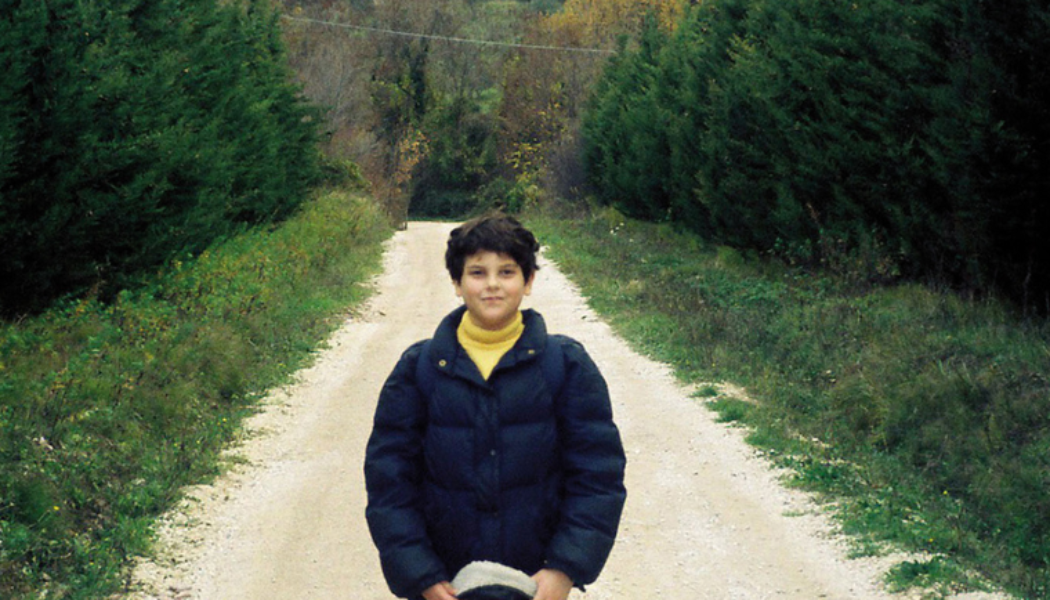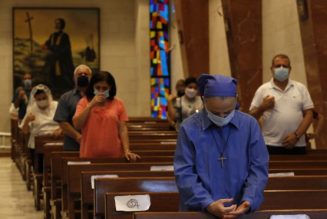
Editor’s Note: This is Part 2 of an in-depth interview with Antonia Salzano Acutis on the news that her son will soon be canonized, making the first millenial saint. Find the first part of the interview here.
Carlo was openly religious in his high school. Yet he was not snubbed by his classmates. How come?
Some people think that being religious is something that takes away from you, but it is something that gives to you. The problem is the insecurity that the majority of young people have today. This is an insecurity which is also the result of their education. They think that they must have the smartphone most in fashion, the right designer clothes, or they will fall into depression. Or they think they need to get plastic surgery because they don’t like their nose or body. In my opinion, many girls are beautiful, and they ruin themselves by having plastic surgery.
If your security is only on account of these things, if you don’t have an interior life, then you don’t have an understanding of eternal life. You live as though you were a vegetable, with the functions of a vegetable. You don’t have an outlook of the spirit. You live as though you were only a body, and only had your five senses, and that’s it. Certainly, this creates great insecurity.
When we live a Eucharistic life, we reach the end of love. It is a life of success, as Carlo would say, because we have placed God first. You can get the Noble Prize, but without reaching this end, we have failed.
What happens when people live without a spiritual life?
In the long run, a life like this creates great problems. Why are we seeing so much depression among the young? Because they don’t give themselves to values and have no spiritual outlook. How do you react in front of death and serious problems, which, unfortunately, we have in this world? They don’t have any answers and put their heads in the sand. They don’t ask questions. They only want to have fun. They live only for pleasure. This is a way to anesthetize things, but when something grave happens, it is a catastrophe. They are not prepared. But, mostly, they can’t find answers that make any sense.
The answers that make sense can only be given to you by Christ. He is the only one who died and was resurrected. As St. Paul said: If there was no resurrection, then our faith is in vain (1 Corinthians 15:13-14).
What effect do you think overusing smartphones and technology has on people?
I see kids today with eyes that have no light in them. Maybe it is because they are spending so much time with these video games and smartphones. They seem lifeless. Carlo had noticed this in a few kids that he knew who were always gaming.
Recently, my husband was taking a stroll in Assisi in front of a big castle with a piazza in front. He came upon a group of teenagers, about 60 of them, sitting in complete silence. No one was talking to each other. Everyone was looking at their phones. My husband took a photo and sent it to me. It was really disturbing.
This makes us understand that these instruments also take away the beauty of relationship. Let’s remember that the Trinity is a relationship: Father, Son and Holy Spirit. We are made to be in relationship with one another. So, when technology takes this away from us, it goes against our nature. No wonder this causes problems — even psychological problems.
Do you think that all the technology we have today distracts from one’s prayer life, that it causes people to pray less?
Carlo used to say that time cannot be wasted on the things that God does not want. Every minute that passes is one minute less for our personal sanctification. Therefore, let us maximize our time … for eternity.
How did Carlo use his cellphone?
When Carlo was alive, we didn’t have smartphones, but we did have Messenger [on flip phones]. He used to turn Messenger off. The reality is that he was extremely busy with all his activities, his exhibits, his work as a catechist. He did not have time to waste. He used his cellphone sparingly.
What about videogames? What did Carlo think about gaming?
Carlo got a PlayStation when he was 8 years old. He had read about children in the U.S. who ended up going to clinics to be “detoxified” because their dependence on video games had reached an extreme. Some had developed problems with epilepsy. He was shocked by this. So he decided very early on to only play for one hour a week. He imposed this on himself and always maintained this. This shows the virtue of temperance, which is one of the seven virtues by which the Church declares someone to be a saint. The virtue of temperance tells us to use good and beautiful things well. So even the PlayStation, Xbox, Gameboy — if it is not too violent (because there are some games which I think are Satanic) — can be positive.
But Carlo would say, “We can’t become enslaved by these things [technology]. We must be in control of them.”
Because we have intelligence and are made in the image of God, we must dominate technology. If these things take away your liberty, they become instruments of the devil. Then a person doesn’t do anything else. They don’t have relationships with others. They don’t have a second to pray or to think.
What do you tell parents whose children have left the faith?
St. John Bosco used to say that when you have a small plant and you see that it is growing crookedly, you need to straighten it up with little wooden poles. This is much harder to do when the plant has grown up. You need a special grace.
The error of many parents is not praying daily with their children when they are young: in the morning and evening, before meals, or saying the Rosary with kids once they reach the age of reason. Parents must be the first catechists. They should read Bible stories and the stories of the saints. They must speak about the approved apparitions of the Church, like Fatima, Lourdes and Pontmain.
A final thing: Don’t give up. When parents baptize their children, they swear before God to raise their children in the Christian faith.
I saw a lady in Church the other day who stopped me to tell me that her daughters, ages 16 and 14, don’t want to go to church anymore, and a priest had told her not to force them. This is an error. Because this priest does not trust, apparently, that even if teenagers go to Mass in a bad mood and without wanting to, Our Lord always acts in the sacraments. First of all, before our kids are 18, we must exercise a certain authority over them. Once they turn 18, they can decide what to do; but until then, bring them to Mass. This mom that I met had totally given up, as though there was nothing left to do.
This is wrong.
What other errors should parents avoid?
Parents must learn to say, “No.” Always saying “Yes” is an error. It has been scientifically proven that teens are not yet fully developed. Their brain is still in the phase of development with synapses which are not yet fully connected.
Another problem is when teenagers get involved in dating too young. Our job is to educate and guide our children.
Smartphones, the internet and TV cannot be babysitters. Having kids means making sacrifices. The little time I have, I need to give to them and spend quality time with them. Maybe the quantity of time is not important, but the quality is.
People are leaving their children on the internet at 6 or 7 years old. You understand that with the pornography that exists online, this is destructive. In Italy, they did a study that children as young as 6 and 7 until 16 years are looking at it: 80% are looking at porn sites — boys and girls. Think about how this ruins them. This is a danger.
Parents need to learn how to limit the internet with systems that control the sites that our kids are going on. Parents need to wake up because it seems that so many are like “Sleeping Beauty” in the forest. So many parents are incapable of confronting this technology. For many, they have been caught unprepared. In the legal system, there is a saying, “Ignorance is not an excuse.” The same goes for the education of our children. We must be awake.
Parents need to be wiser than this. We have lost the use of our reason. Parents are the first educators. You can’t just send your children to the parish and think that every problem will be solved there — or even school.









